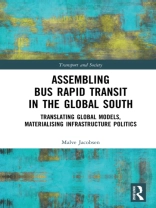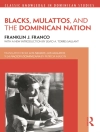This book explores the mobile ethnography of Dar es Salaam, where consultants and politicians have planned and implemented a bus rapid transit (BRT) system for two decades. It analyses the dual processes of assembling BRT in the Tanzanian metropolis and establishing BRT as a policy model of and for the Global South.
The book elucidates how policy models are constructed and circulated around the globe and depicts the processes by which they are translated between, and materialise within, specific contexts. It presents the case of BRT to demonstrate how technocrats shape these processes through persuasive work aimed at disseminating and stabilising this transport model, and how local actors influence its adaptation in Dar es Salaam. The book adopts a ‘double mobility’ approach to show how this ethnography follows travelling consultants, circulating policies and moving buses to explore the fluidity of the BRT model. Linking key debates in policy mobility studies and Science and Technology Studies, enriched with postcolonial perspectives and geographies of transport and infrastructure, it offers new insights into the technopolitics of planning and implementing infrastructure systems.
This book will appeal to academics and students of human geography, transport studies, science and technology studies, and African and development studies interested in the technopolitics of transport planning.












